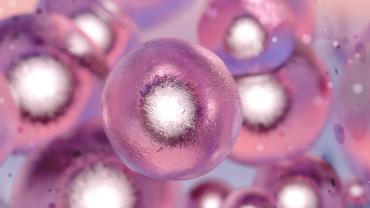
Cell senescence is the irreversible growth arrest in normal cells that plays a role in the limitation of the lifespan of a cell. Senescent cells have increased expression of cell cycle inhibitors, alterations in cellular structures, changes in protein expression, permanent growth arrest, and resistance to apoptosis. Some cells will naturally undergo senescence over time, but cells may also undergo premature senescence due to injury, inflammation, oxidative stress, DNA damage, decreased autophagy, mechanical stress, limited telomere replication capacity, and other insults.
Although the cell cycle may be stopped, senescent cells may remain metabolically active, which may affect tissue function or organ function, and may contribute to the risk of disease. Many senescent cells present with the senescence-associated secretory phenotype (SASP), which involves the secretion of cytokines, chemokines, growth factors, and proteases into the cells. This may lead to the stimulation of angiogenesis, chronic inflammation, alterations to the renewal or differentiation of stem cells, optimization of tissue repair, or stimulation or inhibition of cell proliferation. SASP is generally found in cells that become senescent due to stimuli such as DNA damage, telomere dysfunction, oxidative stress, or epigenomic or mitogenic signals. SASP cells may also have paracrine activities.
Transient cellular senescence, especially SASP, may promote tissue repair or regeneration after injury. However, the accumulation of senescent cells may contribute to aging and age-related conditions. Studies have found the potential for senescent cells to be involved in the development of conditions such as cardiovascular disease, osteoarthritis, macular degeneration, insulin resistance, and neurodegenerative conditions. Research conducted on the role of senescent cells in aging and associated conditions is ongoing. One potential factor is that senescent cells may contribute to chronic inflammation, which is associated with many age-related conditions. Additionally, senescent cells may disrupt tissue structures, which impacts function and could contribute to the development of certain conditions.
Some phytochemicals act as senolytics (or small molecules) that selectively induce autophagy or apoptosis of senescent cells to help clear them from the body to reduce the risk of their negative impact on health. These compounds include quercetin, fisetin, resveratrol, and curcumin. Consuming foods rich in these compounds as part of a healthy diet may support healthy aging. Some individuals may find additional support for healthy aging by supplementing with these and other senolytic agents.*
By Kendra Whitmire, MS, CNS